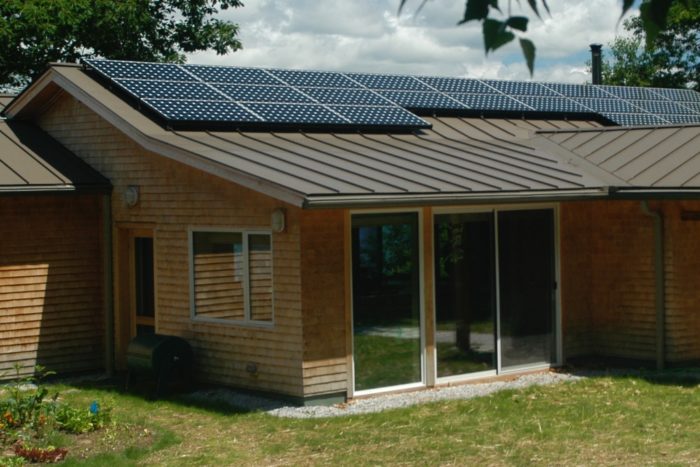
Worried that your rooftop photovoltaic (PV) panels are cranking out less power than they should because they’re dusty? Don’t be. Paying someone to wash them is likely to cost more than what you’d gain in electrical output, engineers at the University of California, San Diego, said.
According to an article in Laser Focus World, the efficiency of panels that hadn’t been cleaned or rained on for 145 days during a drought had dropped by 7.4%. But washing the panels midway through the summer would have boosted the value of electrical production by just $20.
Power losses are greater for commercial installations, but even there probably not enough to justify the cost of a cleaning. For very large installations, however, washing made more sense economically.
The conclusions were based on a study of 186 solar installations in California in 2010. Jan Kleissi, the report’s principal investigator, said pollution and dust levels in California are fairly typical of other parts of the country, if a little dustier. In areas that get more rain, panels would tend to stay cleaner, with even smaller energy losses, making for an even more compelling argument against paying for a cleaning.
One exception is bird droppings. Rain won’t wash them off and they block virtually all light, the study said. So if your solar panels happen to be in an avian bombs-away zone, it probably makes sense to clean the panels once in a while.
The study was originally published in Solar Energy.
Weekly Newsletter
Get building science and energy efficiency advice, plus special offers, in your inbox.





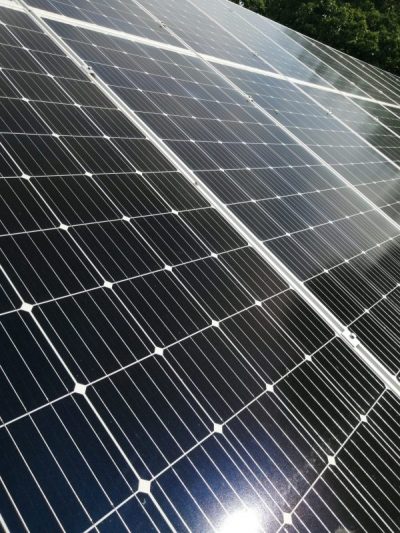
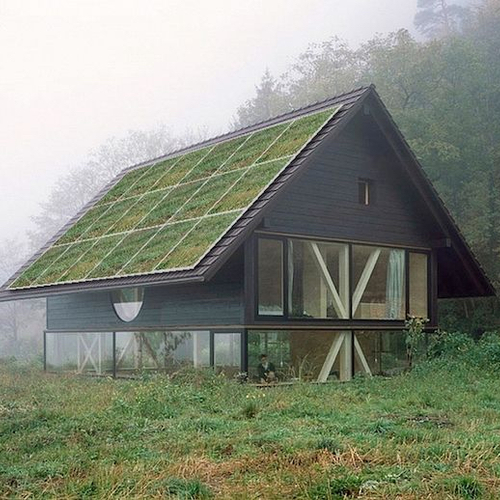
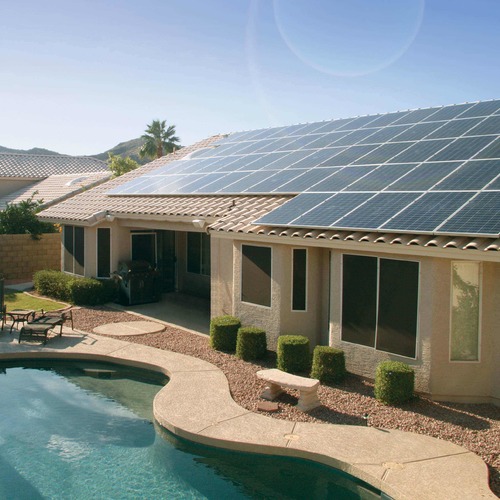
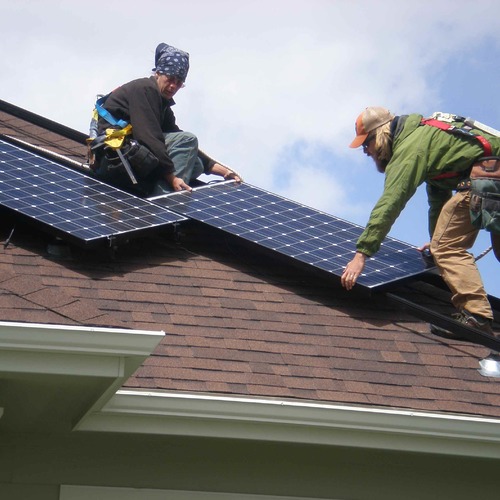






10 Comments
DIY vs. professional cleaning
Seems like it's worth $20 to me to go out with the garden hose and shoot it up onto the roof for a few minutes. Probably only viable on a single-story roof, though.
bad study, or bad report?
As someone who has designed and sold PV systems, and also reviewed performance data and done quite a bit of financial/payback analysis, I profoundly disagree with the conclusions of this study (at least as reported in the linked article). I don't know if the fault is with the original study, or with the author of the article that summarized it, but there are several key points that are being missed:
- a 7.4% efficiency loss/gain is a BIG deal. That margin can make or break the financial analysis. They claim that only translates into an extra $20 (per year? per month?) of electricity, but they appear to be assuming that when the rains come, the panels will get clean the same as they would if they were washed - this assumption is unwarranted.
- Air quality is paramount. High levels of air pollution, and particularly high levels of pollen, will have a substantial impact. This varies a lot by site. Being next to a freeway, or near pollen-heavy trees, makes a big difference.
- Bird droppings require washing, as they say. So does pollen - it's sticky, and quite opaque.
- The pitch (angle) of the array makes a big difference in how often and how badly cleaning is needed; a steeper pitch means more self-cleaning from rain, but this was never even discussed.
Overall this report seems like a poorly-thought-out facile attempt to develop a rule of thumb that is not actually broadly applicable. Certainly it is a waste under some circumstances to pay for professional cleaning. But in other circumstances, it makes lots of sense.
How do you know the difference? Go look at your panels. Run you finger across them and see how much crud you pick up. Splash some water on them and see how much comes off. It's a pretty physically obvious thing when the panels are dirty, or when the crud won't easily wash away.
Reply to Brent Eubanks
Brent,
In my opinion, neither the study nor the report was bad. The study provides general guidelines, and Scott Gibson reported those guidelines accurately.
Just because you read a study that provides guidelines, doesn't mean that you throw your common sense out the window. I have often written that window replacement is not a cost-effective way to save energy. But if your house has rotten window frames and broken glass, you should replace the broken window, in spite of my guidelines. We assume readers have common sense.
Nothing is stopping you from cleaning your PV panels. You can even hire a cleaning crew to do the work, although your payroll costs are likely to be more than the value of the energy saved, as the study reports. If you are a homeowner who climbs on the roof and washes your own panels, you can calculate the value of your time any way you want.
In some areas of the country, it's possible that your PV panels will get quite dusty. Where I live in Vermont, I have never once washed any of my PV modules, even though some of them have been on my roof for 33 years. When I took down one of the PV modules on its 30th birthday to run some performance tests, the module beat its original factory specs, even though it had never been washed. I didn't even wash it for the tests. That's because there isn't much dust in Vermont, and we get lots of rain and snow.
If conditions are different where you live -- use your common sense and wash your PV array as often as you want.
Very dependent on the region
Interesting that the study was done in California. The attached picture is Middlebury's entry at this years Declathon. the day after officially opening. The dry Santa Anna winds brought in plenty of dust from the area and the deserts.
I'm north in Washington State, where I've found that I need to rinse panels twice a year to clear the pollen off the panels and deal with the birds. The pollen from the local trees seem to be quite sticky and when rain brings it to the bottom of the panels the pollen builds up. Enough to start collecting seeds and moss... The birds provide the seeds and the fertilizer.
I asked a local company that makes chemicals for window washing - and their comments is that people who do not wash panels in our area will eventually be very unhappy. Their observation is that many of the glass manufacturers have moved away from boron in the tempered glass over to sodium - and the panels with sodium are more prone to etching on the glass from things like bird droppings.
Sodium = sodalime, boron=boronsilicate (I know there is a difference... just took short cuts writing -- added after original post...)
Blog's title dismisses the details at which GBA excels
"Don’t Bother Cleaning Your Solar Panels" is a pretty blanket statement. I agree with Martin's comment #3, that GBA doesn't tell us to ignore common sense. But on the other hand, GBA excels at helping us learn what factors are important and which are insignificant. This blog's title is sensationalist and misleading, in that it implies that all variables are unimportant. The title denies the precision and analysis of variability that are GBA's strengths. The title comes close to being contradicted by the content, which would be better summarized as "paying to clean your solar panels may not be cost effective in many locations".
Many people can clean their solar panels themselves, in a few minutes, with a garden hose and nozzle. It depends on where and how the panels are installed. I bet most of your readers with accessible panels would be eager to do so, for the 7.4% efficiency improvement that the blog references. Our installer says they have measured a 10% advantage to cleaning, in our location. The pollen issue that Brent and Dennis mention in comments 2 and 4 is an important variable for readers to consider, which wasn't mentioned in the blog.
Response to Derek Roff
Derek,
Your criticism of the original headline to this article is fair. Headlines are necessarily brief, and are rarely nuanced, but I agree that the headline "Don’t Bother Cleaning Your Solar Panels" doesn't accurately reflect the story. So I have re-written the headline.
Thanks to you and other GBA readers for your thoughtful comments.
Solar Panel Maintenance
Just to add to the discussion, we agree with the "turn a garden hose" on them comment - our panels produce measurably more KWhr after their midsummer rinse. Utah is dusty in summer, and rain is "dirty".
As a further thought, we noted drop off in one panel's production (out of sight from ground), and found that it had been struck by lightning - burned a hole clear through it. Production took 2 months to drop to zero, presumably as the glass progressively shattered. Bit of a surprise . . . . the electronics survived, so the panels must be wired right!
Reply to Martin
To be clear, I wasn't criticizing Scott Gibson's reporting. I was suggesting that the person who wrote the linked article (in Laser Focus World) may have glossed over important details from the original study when they summarized the article. Either that, or the original study authors simply missed/ignored important issues like array tilt, frequency of rain, and proximity to pollen-heavy trees. Scott's summary of the LFW article seemed perfectly reasonable; my problem is with the LFW article.
Don't agree based on actual data
Scott,
While I appreciate a good discussion, data gathered at four sites show that there is an economic benefit to PV washing.
Here is the reference link: http://www.renewableenergyworld.com/rea/news/article/2013/11/the-importance-of-a-pv-system-washing-program
Response to Adrian Tylim
Adrian,
I disagree. The article you linked to did not attempt an economic analysis that included the labor cost to wash the PV modules, so it is irrelevant.
Moreover, the tables showing the value of the electricity produced by the PV arrays assumed that the value of the electricity to the owner is 15 cents per kWh -- definitely on the high side for most U.S. owners of PV systems.
Log in or create an account to post a comment.
Sign up Log in